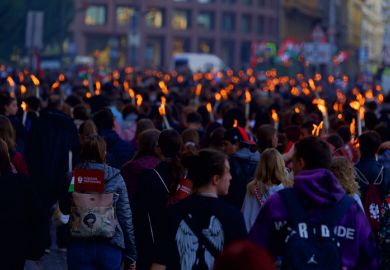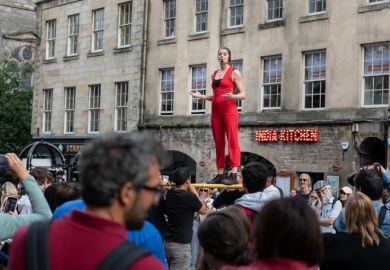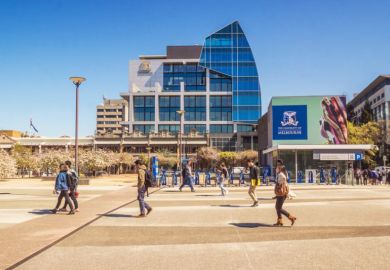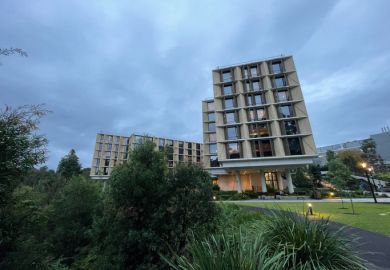Source: Michael Sean Gallagher
When terrorists in northern Nigeria killed 18 staff, students and associates of one of the region’s universities in April 2012, the target was not Christians, Muslims or any other section of the institutional community – it was higher education itself.
This is the view of Abubakar Rasheed, vice-chancellor of Bayero University Kano, who describes in a podcast interview with Times Higher Education this week how his institution has been shaped by the terrible events that left three of his close friends and colleagues of 30 years dead “for no reason, other than the fact that they happened to be in the wrong place that day”.
“In the morning hours of the day, Christian worshippers in the university were attacked and 18 of them were murdered – many were professors, some were students, some were friends of the university who had come to what was supposed to be a safe environment to worship on Sunday,” Professor Rasheed recalled.
“The whole university was thrown into very serious turmoil – nobody was prepared for this kind of conflict, this kind of crisis. It was…like a really bad dream.”
Islamic extremists hoping to force a divide between the institution’s different communities carried out the attack, he said, “but the university community was not deceived”.
“The target was higher education,” continued Professor Rasheed, who spoke to THE at last week’s Going Global conference, hosted by the British Council in Miami.
“We are the leading university in the area and the terrorists wanted to ensure they caused maximum disruption to the whole progress and programme of modernisation, civilisation, globalisation…[we] were the main agent of progress in the area and they singled it out and attacked it.”
Despite leaving “a very serious dent”, the incident strengthened the university and brought its community closer together, Professor Rasheed said. The institution now attracts more government funding, has created more programmes and has increased the size of its academic faculty, including the number of Christians, since the attack.
“If there is anything positive that emerged it is the fact that we as a community of knowledge seekers, and knowledge disseminators…have realised that we have to work together to understand that the main objective of the terrorists…is to divide us,” he said. “If they had succeeded in dividing our university community along religious lines two years ago…that division would have affected more and more institutions in the country.”
He said that instead the academic community’s “common human properties have become more important than the differences that the terrorists wanted to exploit”.
“Nobody would have wished this to have happened in order for us to realise the need to be more united in our pursuit of goals,” Professor Rasheed added. “But it has happened – we have tried to make the best use of the unfortunate situation and today our university has been rebuilt and we are really emerging as one of the most serious universities in Nigeria.”
Register to continue
Why register?
- Registration is free and only takes a moment
- Once registered, you can read 3 articles a month
- Sign up for our newsletter
Subscribe
Or subscribe for unlimited access to:
- Unlimited access to news, views, insights & reviews
- Digital editions
- Digital access to THE’s university and college rankings analysis
Already registered or a current subscriber? Login





